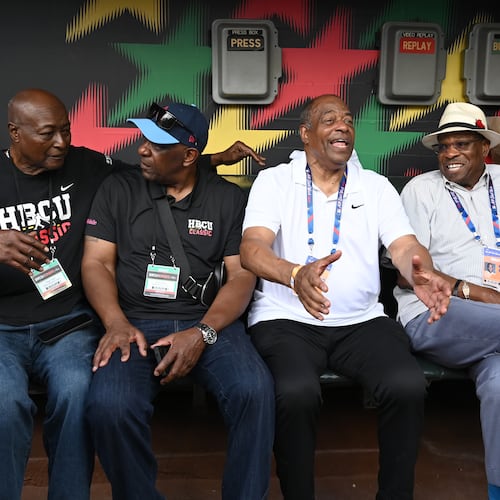This winter’s non-tender deadline is Wednesday. The Braves have eight players eligible for arbitration, and while half are certainties to receive tenders, the team might cut loose two or three players.
Given the financial state of MLB, there’s expected to be a large sum of non-tenders this winter. Teams are cutting costs and it’s going to be a slow-developing market all-around (even with the Braves striking quickly with starters Drew Smyly and Charlie Morton).
Players with three or more years, but less than six years of league service are eligible for arbitration. A player must be tendered by Wednesday night or he’ll become a free agent. If a player is tendered, the sides would proceed to an arbitration hearing unless they reach a contractual agreement beforehand. The sides can still reach an agreement to avoid arbitration after Wednesday’s deadline.
The Braves listed below are arbitration eligible and must be tendered before Wednesday. MLB Trade Rumors arbitration projects are included in parenthesis; the first number is an estimate based on the 60-game season results, while the second number is based on a player’s statistics being extrapolated over a 162-game campaign. There isn’t much clarity as to how the arbitration process will be conducted this offseason.
- Utilityman Johan Camargo ($1.9 million/$2.3 million)
- Left-hander Grant Dayton ($900k/$1.0 million)
- Outfielder Adam Duvall ($4.4 million/$7.1 million)
- Starter Max Fried ($2.4 million/$4.6 million)
- Right-hander Luke Jackson ($1.9 million/$2.1 million)
- Left-hander A.J. Minter ($1.1 million/$1.6 million)
- Starter Mike Soroka ($1.8 million/$1.9 million)
- Shortstop Dansby Swanson ($4.3 million/$8.3 million)
Soroka, Fried, Swanson, Duvall and Minter are likely to be tendered. Each was an important contributor to the Braves’ third consecutive National League East title and appearance in the NL Championship Series. Soroka, Fried and Minter are first-time eligible. Duvall’s and Swanson’s situations, specifically, will be interesting if either proceeds to arbitration given the difference in MLBTR’s projections.
Duvall, who was considered a non-tender candidate the past two last winters, is set to receive a healthy pay increase. He proved a legitimate contributor in the lineup last season and could be positioned for more playing time in 2021 depending on how the Braves’ offseason shakes out.
Credit: Curtis Compton / curtis.compton@
Credit: Curtis Compton / curtis.compton@
He is set to earn a raise over the roughly $2.8 million (before prorated salaries) he and the team agreed upon last January. If he’s non-tendered, which isn’t inconceivable if the market sets his value below the projections, the Braves would almost certainly be trying to re-sign him at a more favorable number. Still, that would be cutting loose a player who’d appeal to a handful of other organizations after rebuilding his value in 2020.
Camargo, Dayton and Jackson are less clear. At nearly $2 million, the Braves could opt against tendering Camargo, who’s coming off consecutive underwhelming years. There should be plenty of players with Camargo’s profile available following non-tenders, so it’s possible the Braves let him hit free agency. The team could always re-sign him at a lower number, too. With or without Camargo, the Braves have been trying to add bench help since the shortened season began.
Dayton is cheap enough the Braves may consider tendering him a logical choice to retain bullpen depth. At his low cost, the Braves might tender Dayton and carry him into camp to compete for a reliever spot next spring. Jackson’s earnings project roughly twice Dayton’s. The right-hander, always a hot topic among the Braves community, had a disappointing season after a somewhat underappreciated 2019 campaign.
The Braves could tender Jackson and see how he performs in spring training, but giving nearly $2 million to a reliever who didn’t crack your postseason roster last month might lead them in another direction. Again, if Jackson is non-tendered, the Braves could still re-sign him at a lower number.
About the Author
Keep Reading
The Latest
Featured


